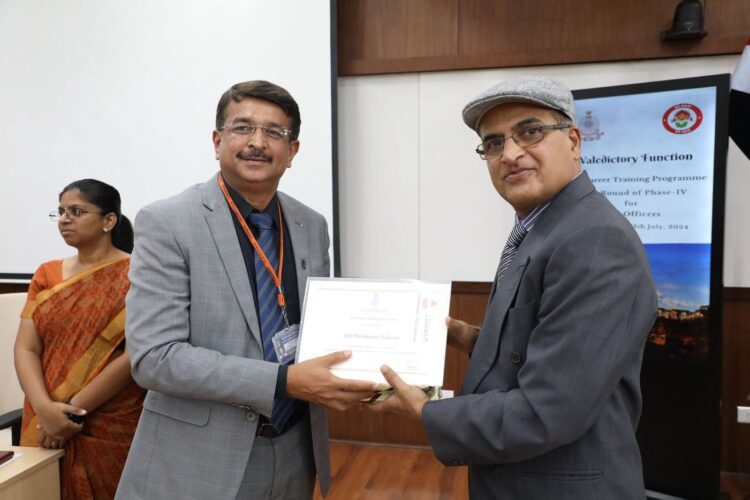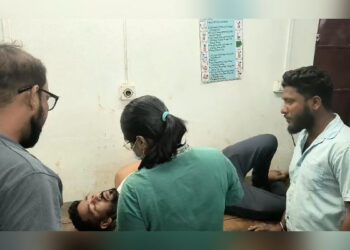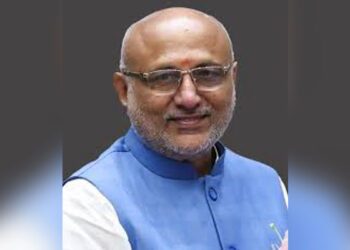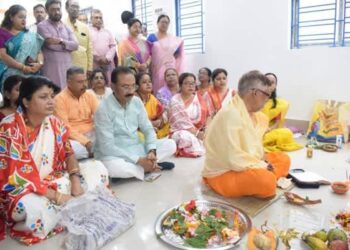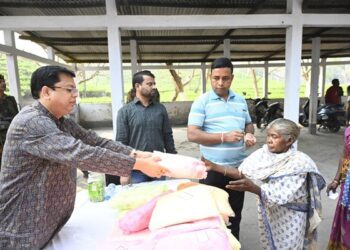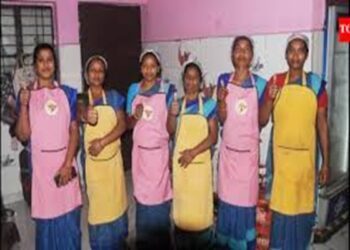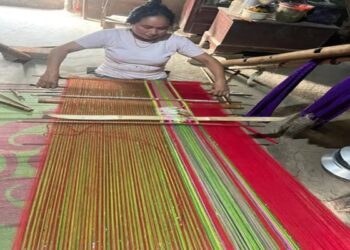Agartala, July 18, 2024 The Tripura Urban Livelihoods Mission (TULM) has been honoured with the prestigious SPARK Award, recognising Tripura as the second-best state in the Northeast and Hilly region for the years 023–24. This award, presented at a ceremony organised by the Ministry of Housing and Urban Affairs in New Delhi, celebrates the significant strides made by TULM in empowering the urban poor and women through various livelihood initiatives. The event saw participation from all states and union territories, underscoring the importance of urban development across India.
The award ceremony was graced by Hon’ble Minister Sri Manohar Lal, who distributed the accolades to the winning states. His presence, along with that of Hon’ble State Minister, MoHUA, Sri Tokhan Sahu, highlighted the government’s commitment to recognising and encouraging innovative urban livelihood programs. Sri Abhishek Singh, Secretary of the Urban Development Department, Government of Tripura, received the award on behalf of the state from the Union Minister of Housing and Urban Affairs. Accompanying him were Dr. Brahmneet Kaur, IAS, State Mission Director of TULM, and Sri Pratim Deb, State Mission Manager (Financial Inclusion), who also received awards recognising their exceptional contributions to the mission’s success.
Under the mission in Tripura, a total of 1276 self-help groups (SHGs) have been formed, demonstrating the extensive outreach and impact of TULM’s initiatives. Of these, 147 SHGs were brought under Area Level Federations (ALFs), and two City Level Federations (CLFs) were established, promoting a structured approach to self-help and community development. To support these groups financially, 1104 SHGs received a one-time revolving fund of ₹10,000 each, amounting to a total of ₹1,10,40,000. Additionally, 58 ALFs were granted ₹50,000 each, totaling ₹29,00,000, to enhance their operational capacities.
The mission has also made significant strides in providing financial assistance and training to SHGs. A total of 1881 SHGs received bank loans amounting to ₹34.36 crore, with a maximum interest rate of 7% post-FY 2018-19, ensuring affordable credit for economic activities. Furthermore, 436 urban youths benefited from ₹5.90 crore in bank loans, fostering entrepreneurship and self-reliance among the younger population. Training programmes have been a cornerstone of TULM’s strategy, with 2248 SHG members receiving training in diverse activities such as bamboo craft, healthcare, phenyl and soap making, agarbatti making, soft skills, tender processes, papad and pickle making, paver block making, bio-flock, and candle making.
Market integration and sales have also seen substantial progress, with 1390 SHG products listed on e-commerce platforms like Amazon and Flipkart. This digital presence has facilitated the sale of 301 products across various locations in India and internationally, generating ₹23,000 in revenue for the SHGs. The products are also sold through City Livelihood Centres, which act as seller points for these e-commerce platforms, further enhancing market reach and visibility.
To address infrastructure needs, 12 shelter houses were sanctioned across the state, with 10 constructed and nine currently operational. These shelters provide essential support to the urban poor, reinforcing the mission’s commitment to comprehensive development.
The Secretary of the Urban Development Department emphasised that the recognition through the SPARK Award is a testament to the dedicated efforts of TULM in fostering economic and social empowerment among the urban poor and women. The award underscores the success of the mission’s multifaceted approach, which includes financial inclusion, skill development, market integration, and infrastructural support.
The SPARK Award not only highlights the achievements of TULM but also serves as an inspiration for continued efforts towards sustainable urban development. As Tripura continues to implement innovative and impactful livelihood initiatives, the state sets a benchmark for others to follow, demonstrating the transformative power of inclusive and well-coordinated urban development programmes.


